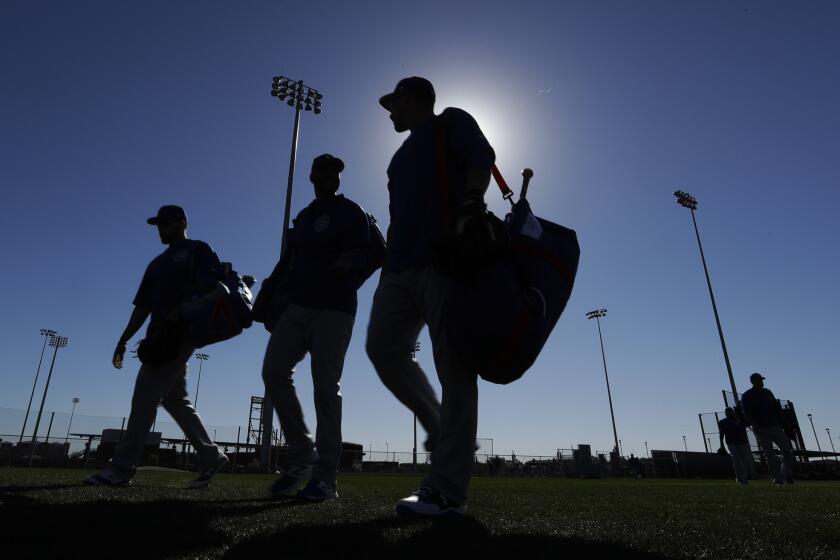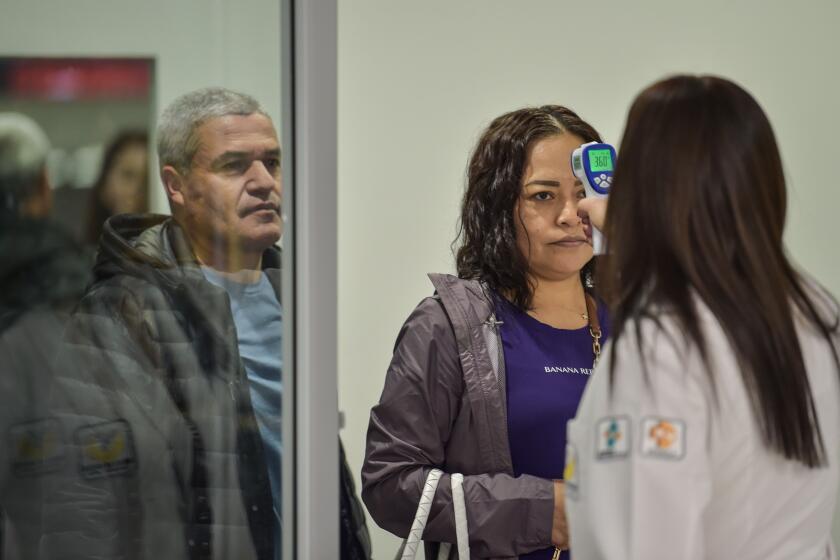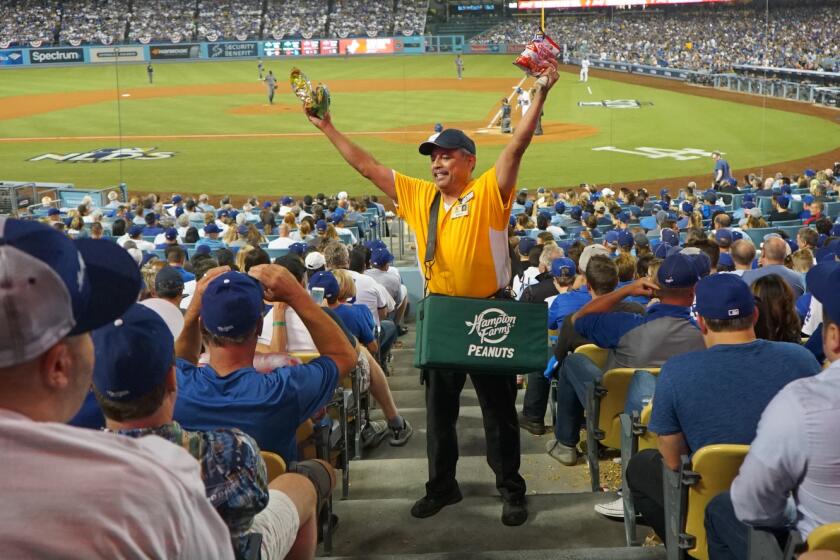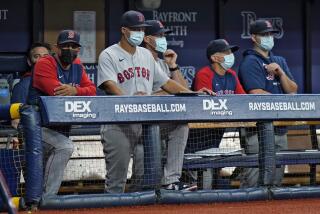MLB fears international players might have difficulty returning to the U.S.
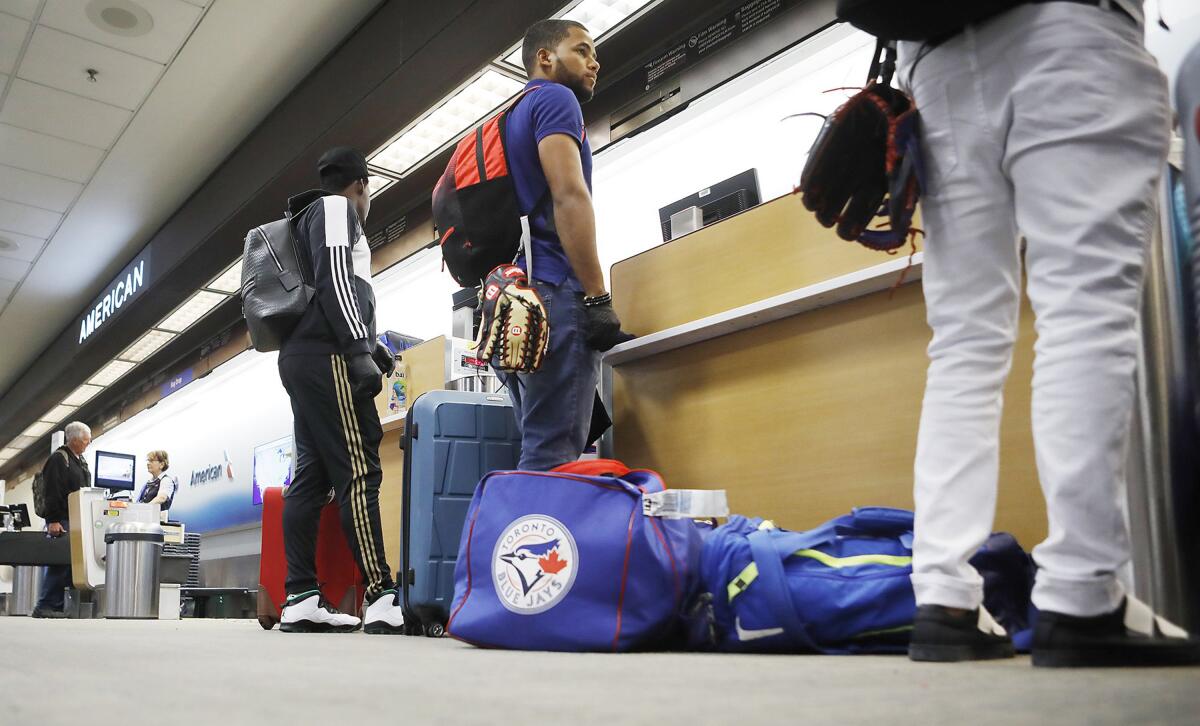
Over the last week, after Major League Baseball announced it had suspended operations and delayed the start of the regular season because of the COVID-19 pandemic, players across the majors and minors dispersed.
Players on 40-man rosters were given three options: remain where their clubs hold spring training in Arizona or Florida, travel to their club’s city or go home.
Some major leaguers — and, left with little choice, nearly all minor leaguers — elected to return home to wait out the crisis. Home for the majority of players is the United States. Home for many more is in Latin America, where the spread of the coronavirus, weeks behind the U.S., could overwhelm the region’s countries and territories. And home for a handful of players is Asia and Europe, where the virus has spread. There have been an array of responses.
They all present a potential problem some people in baseball already fear: What happens if players, coaches and other personnel aren’t allowed to return to the U.S. due to restricted travel once MLB establishes a start date for its season?
In a way, it’s a dilemma MLB would love to face because it would mean the 2020 season wasn’t canceled entirely. But it would be a daunting challenge.
MLB and the players’ union have advised players on 40-man rosters to stay in the continental United States, according to people with knowledge of the situation, but not all have followed the advice. Players have returned home to the Dominican Republic, Puerto Rico, Mexico and Nicaragua, among other places. Minor leaguers, most of whom weren’t receiving paychecks during the shutdown before MLB announced Thursday a plan to pay them at least until April 8, have overwhelmingly returned home if the area is not considered high risk.
Major League Baseball announces that all minor league players will receive weekly stipends until the season begins.
The Dodgers were among a few organizations that continued paying their minor leaguers the allowances and stipends they received during spring training before MLB’s payment plan was announced. While most of their minor leaguers returned home, the club strongly recommended that players on its 40-man roster remain in the continental U.S. and all have stayed, according to two people with knowledge of the situation.
Angels manager Joe Maddon said Wednesday he was not sure which Latinos on his club went home. He said catching coach José Molina and first base coach Jesus Feliciano both returned home to Puerto Rico. Two-way star Shohei Ohtani received clearance to return home to Japan but said he would stay in Southern California.
On Monday, following the Centers for Disease Control and Prevention’s recommendation to cease gatherings of 50 or more people for eight weeks, MLB announced it was pushing back opening day until at least the middle of May. Starting the season in May, however, is widely viewed as unrealistic as uncertainty continues.
Estimates in the industry for opening day vary from June to August — if the 2020 season is played at all. MLB wants to play as many games as possible, but a condensed schedule appears likelier by the day. The chances of the All-Star game being held as scheduled on July 14 at Dodger Stadium have greatly diminished over the last week.
Figuring out a schedule is atop the list of MLB’s priorities. From there, the league and the union can resolve other logistical matters such as pay, roster size and service-time calculation — the most contentious issue in discussions between the two sides, according to people with knowledge of the situation.
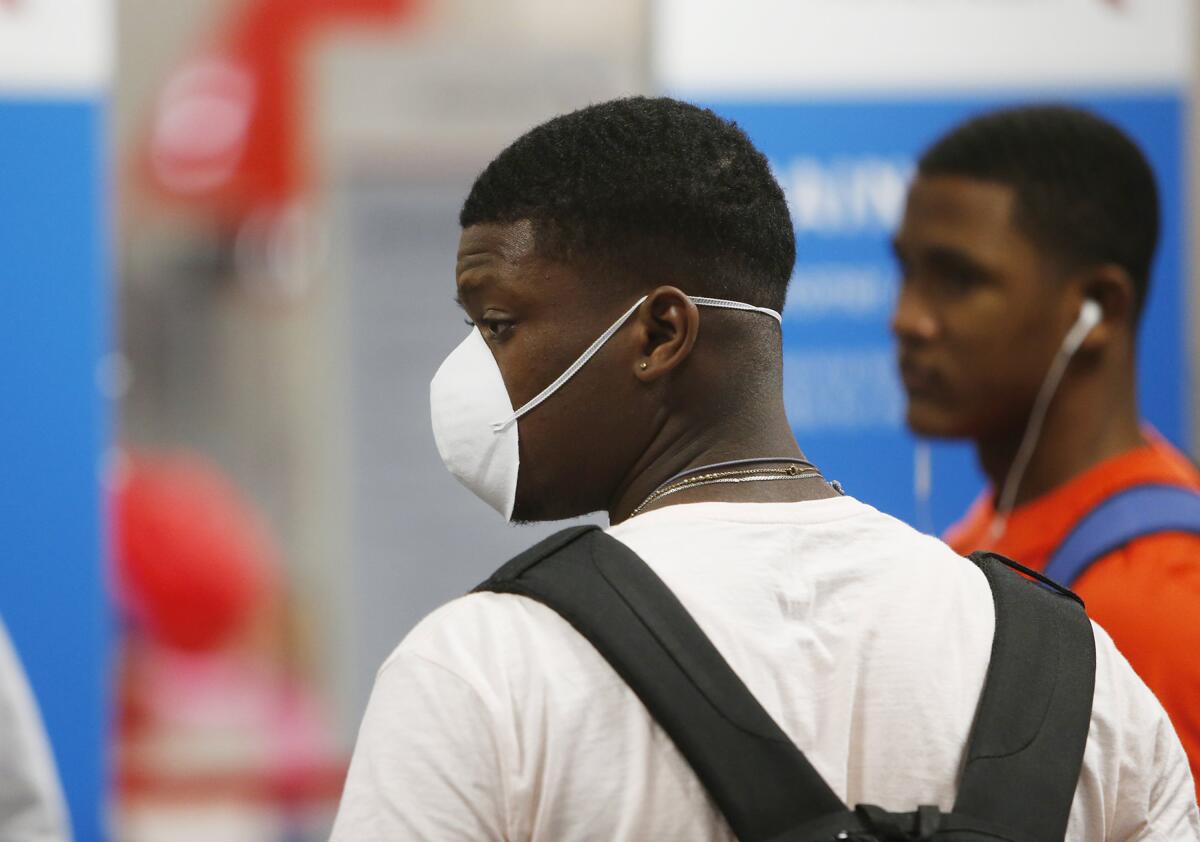
But the timeline MLB and the players’ union are using as a guideline is not universal. Other countries and territories, some of which lack the infrastructure and resources the United States has in place to combat an outbreak, are at different stages of the virus’ spread. Latin America, which supplied more than a quarter of players on opening day major league rosters last season, is just beginning to see coronavirus cases spike and enacting different responses.
A total of 251 players represented 20 countries and territories outside the U.S. on 2019 opening day 25-man rosters and inactive lists. That was 28.5% of the total players. The Dominican Republic had a record 102 players representing 11.6% of the total.
MLB effectively shut down clubs’ Dominican academies and told teams that some players, including Venezuelans, should stay in the U.S. rather than be sent to the academies, according to a person with knowledge of the situation. The league also imposed a temporary prohibition on international scouting.
On Thursday, two days after reporting 21 confirmed coronavirus cases, the Dominican Republic closed its land, sea and air borders for 15 days. Last week, the U.S. embassy in Santo Domingo announced it was indefinitely limiting consular services, including canceling routine immigrant and nonimmigrant visa appointments.
El Salvador bars the entry of all foreigners. Guatemala bans visitors from the U.S. and elsewhere. Mexico closes schools after criticism of its response.
Colombia had 75 confirmed coronavirus cases as of Tuesday and is scheduled to block entry to everyone traveling from abroad starting Monday. Puerto Rico, a U.S. territory, implemented a curfew across the island through March 31, banned cruise ships, closed schools and shut down all nonessential business. The island’s governor has requested that domestic and international flights to Puerto Rico be suspended for 14 days. Puerto Rico had six confirmed cases as of Wednesday.
Mexico, on the other hand, has declined to curtail travel, even from countries with significant outbreaks. The country confirmed its first coronavirus-related death Wednesday.
Venezuelans across the spectrum, from minor leaguers to superstars, have overwhelmingly elected not to return to their country, where political unrest and safety concerns have discouraged players from spending much time at home in recent years.
Major League Baseball teams agree to contribute $1 million each toward a fund that will assist ballpark workers during the suspended season.
Among the possible solutions to travel obstacles is establishing contingency plans with embassies in other countries, according to people with knowledge of the situation. Players could use their previous visas and be screened for the virus before traveling to the U.S. For now, MLB and the union are focused on more pressing issues.
Times staff writer Maria Torres contributed to this report.
More to Read
Go beyond the scoreboard
Get the latest on L.A.'s teams in the daily Sports Report newsletter.
You may occasionally receive promotional content from the Los Angeles Times.

